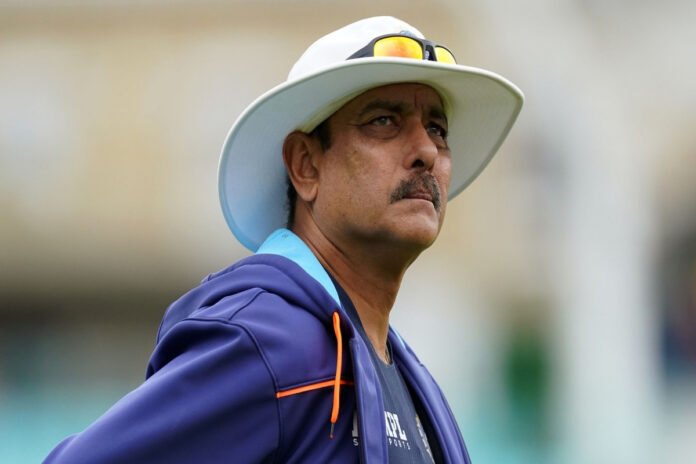AGENCY
new delhi, MAY 16
Former India head coach Ravi Shastri has opened up about a conversation he had with Virat Kohli just a week before the star batter’s unexpected retirement from Test cricket. While Shastri admitted he was “surprised” by the timing of the announcement, he said Kohli’s words during their chat made it clear that the decision had been carefully thought out, and that the time was right for him to walk away from the format.
Kohli called curtains on his Test career on Monday ahead of India’s five-Test tour of England, starting June 20. Kohli finishes as one of the finest Test batters of his generation, with 9230 runs in the format – the fourth-best by an Indian batter – and 30 Test centuries.
Kohli and Shastri formed one of the most successful captain-coach duos in Indian Test cricket history, and the latter has now confirmed reports that the star batter reached out to him ahead of announcing his decision to the world.
“I did speak to him about it, I think a week before [his announcement] and his mind was very clear that he’d given his everything,” Shastri was quoted as saying by The ICC Review.
“There were no regrets. There were one or two questions I asked, and that’s a personal conversation which, you know, he mentioned very clearly, there were no doubts in his mind, which made me think, ‘Yes, the time is right’. The mind has told his body that it’s time to go.”
Kohli is India’s most successful Test skipper by a distance, with 40 wins from the 68 Tests he captained – 13 ahead of the second-best MS Dhoni. As a player, Kohli is known for his intense, heart-on-sleeve approach to the game, and Shastri believes such an approach came with a limit.
“If he decided to do something, then he gave his 100%, which is not easy to match,” Shastri said. “Individually, as a bowler, as a batsman. A player does his job, [and] then you sit back. But [with Kohli] when the team goes out, it’s as if he has to take all the wickets, he has to take all the catches, he has to make all the decisions on the field. “That much involvement, I would think there’s going to be a burnout somewhere if he doesn’t take a rest, if he doesn’t compartmentalise how much he wants to play across formats, there is bound to be a burnout.”
Shastri pointed out that the nature of Kohli’s stardom, the constant eyeballs he attracted, would take a toll and contribute to that burnout.
“He’s got accolades around the globe. He has a bigger following than any other cricketer in the last decade,” Shastri said, adding, “Whether it’s Australia, whether it’s South Africa, he just got people to watch the game. There was a love-hate relationship.”
“They would get angry because he had the ability to get under the skin of the viewer also. In the way he celebrated, you know his intensity was such that it was like a rash.
“It spread very quickly, not just within the dressing room, but within living rooms as well for people watching cricket. So he has an infectious personality.”
Despite that, Shastri admitted he was surprised by Kohli’s decision. “Virat surprised me because I thought he had at least two-three years of Test match cricket left in him,” he said.
“But then, when you’re mentally fried and overcooked, that’s what tells your body. You might be physically the fittest guy in the business. You might be fitter than half the guys in your team, but mentally you’re well done, as they say, then it sends a message to the body. You know, that’s it.”
Shastri-Kohli era saw some of India’s most famous achievements in the Test arena, including a historic first-ever Test series win in Australia, back-to-back series wins in the West Indies, and breaking a 22-year drought for a series win in Sri Lanka.
The team was also highly competitive in South Africa and England, matching the home nations fire-for-fire in conditions that weren’t traditionally suited for sub-continental teams.
Shastri credited Kohli for a large part of that. “At times when you quit the game, you know, and after a month or two months you say, ‘I wish I had done this, I wish I had done this.’
“[Kohli] He’s done everything. He’s captained sides, he’s won World Cups, he’s won an Under-19 World Cup [2008] himself. I mean, there’s nothing for him to achieve,” the former India all-rounder concluded.



























